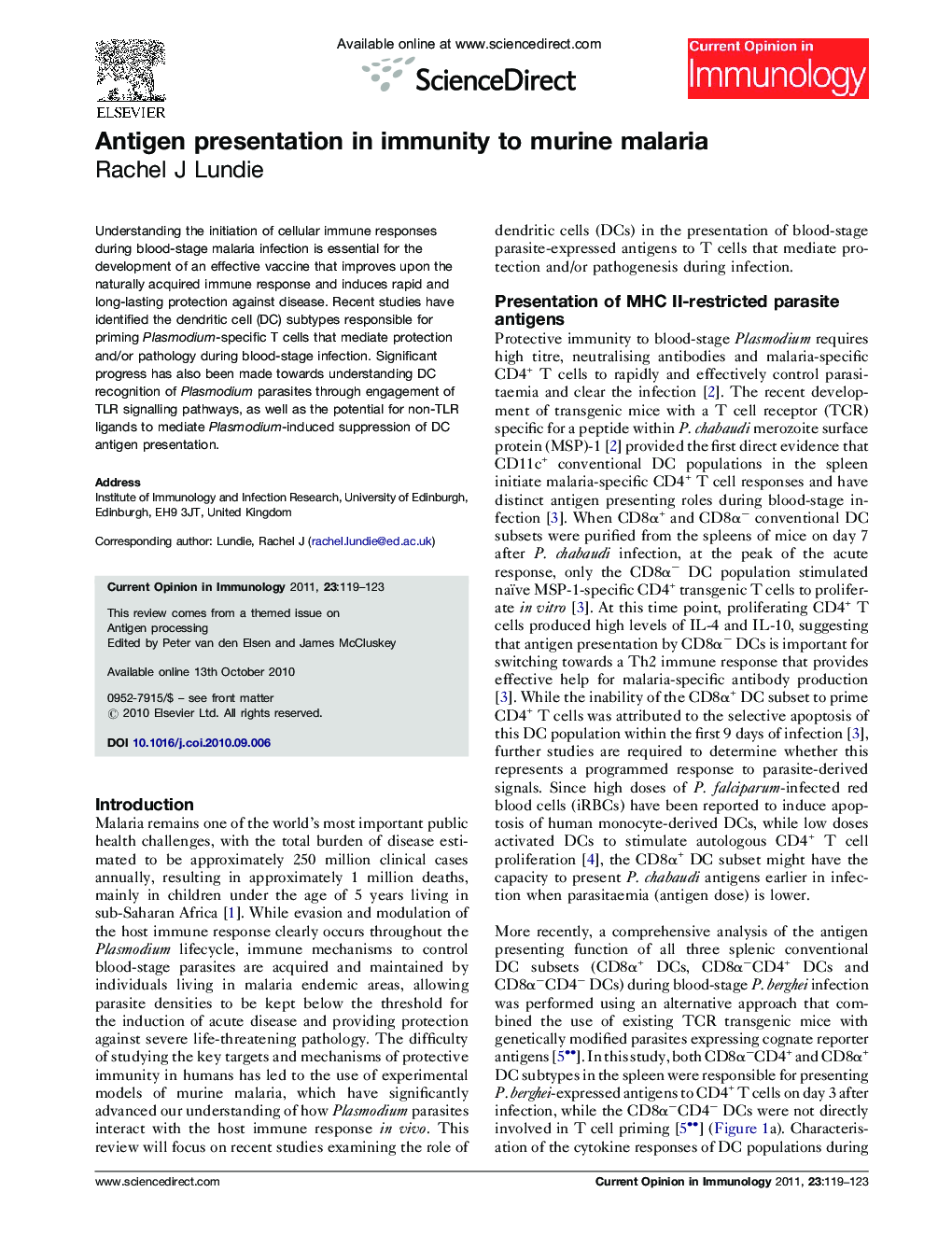| Article ID | Journal | Published Year | Pages | File Type |
|---|---|---|---|---|
| 6115378 | Current Opinion in Immunology | 2011 | 5 Pages |
Abstract
Understanding the initiation of cellular immune responses during blood-stage malaria infection is essential for the development of an effective vaccine that improves upon the naturally acquired immune response and induces rapid and long-lasting protection against disease. Recent studies have identified the dendritic cell (DC) subtypes responsible for priming Plasmodium-specific T cells that mediate protection and/or pathology during blood-stage infection. Significant progress has also been made towards understanding DC recognition of Plasmodium parasites through engagement of TLR signalling pathways, as well as the potential for non-TLR ligands to mediate Plasmodium-induced suppression of DC antigen presentation.
Related Topics
Life Sciences
Immunology and Microbiology
Immunology
Authors
Rachel J Lundie,
